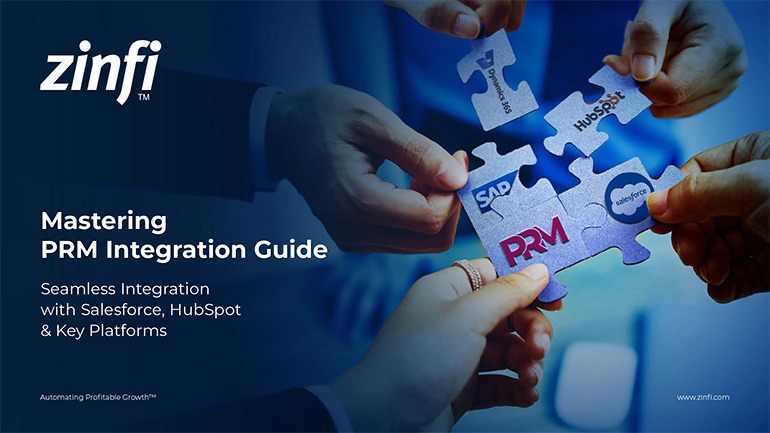Best Practices Articles

What Is Co-Branding? Full Explainer
Co-branding is a term used in marketing where two brands are used together to advertise or promote a specific set of products and services. Co-branding strategies are used in both consumer and business segments. One of the most common examples of co-branding is the weekly flyer your local grocery store sends you advertising various products. This flyer may be branded with your grocery chain’s logos, but the products all have their own brands prominently displayed. Let’s take a quick look at co-branding in the context of various industry segments, and review the tools and tactics that are typically used for this kind of strategic marketing.
From a broad perspective, co-branding involves one vendor relying on another vendor to reach a set of buyers. In fact, marketing products through a channel or network of partners to reach a target audience is one of the most common examples of co-branding. Whether a vendor is targeting consumers or businesses, a co-branded approach is designed to leverage the strengths of both parties.
When it comes to consumer marketing, we see examples of co-branding everywhere, whether it is soda being sold at a fast food restaurant or microprocessor manufacturers posting “powered by” or “inside” labels on another branded product.
In the business segment, co-branding may involve multiple brands that complement each other, all working together to present a more complete solution for buyers. In the technology sector, for example, it is common for resellers to represent a variety of manufacturers simultaneously, and the reseller may run marketing campaigns that use marketing assets with a variety of logos and messaging from multiple vendors.
In today’s highly digital environment, many co-branded promotions to drive buyers through the stages of awareness, interest, trial and purchase rely heavily on automation. For each step in the buyer’s journey, a variety of digital marketing tools and tactics can be used, including social media, online advertising, email and microsites, as well as more traditional tactics like print, radio and television.
When it comes to consumer promotions, it is quiet common for social media sites, online advertising and even digital radio and TV ads to tout co-branded solutions. When it comes to co-branded business promotions, we are more likely to encounter direct campaigns using digital assets such as social media, email and microsites, along with live events. In the consumer segment, events can also play a major role, but the scale of these events ranges considerably, from very small to very large. In B2B marketing, co-branded events tend to be mid-sized to attain some economies of scale. However, there is no hard and fast rule regarding event sizing.
At any rate, when a vendor is trying to go to market through a channel, co-branding can become a very important aspect of the vendor’s marketing and sales activities. Co-branding can also add a layer of complexity to these activities, but the good news is that in today’s marketplace there are abundant automation tools that can make it much easier to manage your co-branding efforts. ZINFI’s partner marketing management (PMM) platform is a prominent example. It enables both vendors and partners to collaborate easily and affordably. Most importantly, it allows both vendors and partners to identify which co-branded campaigns are working, and which are not, and make quick adjustments to refine campaigns based on that information.
Co-branding is here to stay, but it has changed considerably over the last decade and will continue to evolve digitally to help vendors achieve sufficient scale in their marketing and sales activities with improved efficiency and cost-effectiveness. While the nature of co-branding tactics are now more or less settled, there is still plenty of room for innovation as vendors experiment with combinations of tactics, including multi-touch, attribution scoring and (for businesses) account-based marketing. For these and other reasons, you can expect co-branding to continue to evolve over the next decade, and investing in appropriate automated tools will help you keep pace with those changes.
For more information, please check this article.
Best Practices Guidebook
 How to Start and Scale Partner Ecosystems Best Practices
How to Start and Scale Partner Ecosystems Best PracticesDownload Guide
 The Evolution of PartnerOps: Past, Present & Future Best Practices
The Evolution of PartnerOps: Past, Present & Future Best PracticesDownload Guide
 Mastering Channel Sales: Strategies, Best Practices, and Growth Tactics for 2025
Mastering Channel Sales: Strategies, Best Practices, and Growth Tactics for 2025Download Guide
 Winning with Partner Advisory Councils: Best Practices for Partner Engagement & Growth
Winning with Partner Advisory Councils: Best Practices for Partner Engagement & GrowthDownload Guide
 The Future of Partner Ecosystems Best Practices
The Future of Partner Ecosystems Best PracticesDownload Guide
 The AI Revolution: How Technology and Talent are Shaping the Future
The AI Revolution: How Technology and Talent are Shaping the FutureDownload Guide
 Top 105 Partner Management Metrics that Matter Best Practices
Top 105 Partner Management Metrics that Matter Best PracticesDownload Guide
 Mastering PRM Integration Best Practices
Mastering PRM Integration Best PracticesDownload Guide
 Building a Sales Partner Portal with Salesforce Best Practices
Building a Sales Partner Portal with Salesforce Best PracticesDownload Guide
 Building and Managing Partner Ecosystems Best Practices
Building and Managing Partner Ecosystems Best PracticesDownload Guide
 Mastering Co-Marketing and Co-Selling Best Practices
Mastering Co-Marketing and Co-Selling Best PracticesDownload Guide
 Transforming Partner Ecosystems Best Practices
Transforming Partner Ecosystems Best PracticesDownload Guide
 Mastering Partner Ecosystems Best Practices
Mastering Partner Ecosystems Best PracticesDownload Guide
 Mastering Partner Onboarding Best Practices
Mastering Partner Onboarding Best PracticesDownload Guide
 Partner Ecosystem Management Best Practices
Partner Ecosystem Management Best PracticesDownload Guide
 B2B Marketing in the Age of Intelligence Best Practices
B2B Marketing in the Age of Intelligence Best PracticesDownload Guide
 Multi-Partner Co-Selling Best Practices
Multi-Partner Co-Selling Best PracticesDownload Guide
 A Guide to Enhance Channel Sales Efficiency
A Guide to Enhance Channel Sales EfficiencyDownload Guide







